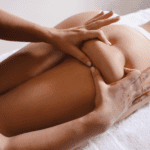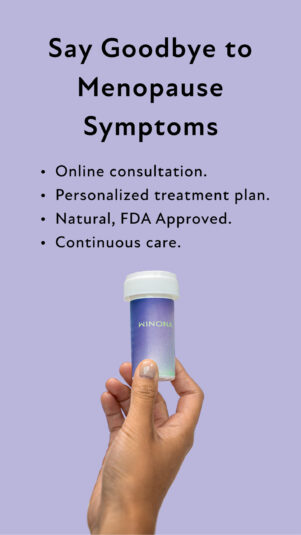Many of us have been socialized to be afraid of certain body parts and bodily functions. You may ignore any related health issues, from vaginas to urine, sex to poo, because you are too embarrassed to bring it up with your doctor. Remember that no medical problem is too embarrassing for your doctor, who has seen it all. Seeking medical advice allows you to put your mind at ease or begin the proper treatment. Here are some examples of ’embarrassing’ issues and how to deal with them…
Thrush
Due to an overgrowth of a yeast called Candida albicans, thrush can cause itching, soreness and a white discharge. It’s more common in women with diabetes (due to raised glucose levels) and in women who are under physical or emotional strain. It can also develop after a course of antibiotics.
If you have recurrent thrush, ask your doctor to check your blood levels. If low, an iron supplement often solves the problem. Your doctor will need to investigate why your iron levels are low.
Candida can be treated with anti-fungal creams and oral capsules from pharmacies. To help prevent it, wear loose-fitting clothes and cotton underwear; avoid vaginal washes, which upset your natural pH balance; eat an iron-rich diet full of green leafy vegetables; and take probiotic supplements.
Remember that no medical problem is too embarrassing for your doctor, who has seen it all.
Leakage
Do you leak urine when you laugh, cough or when going about your daily life? It’s estimated that 40% of women have problems with urinary leakage. While childbirth weakens the pelvic floor muscles, age is also a factor, as pelvic muscles supporting the bladder become weaker as you get older.
- Stress urinary leakage occurs when pressure inside the abdomen increases (during lifting, coughing, laughing, sneezing, for example)
- Urinary incontinence is caused by involuntary contractions of the bladder as it fills, causing urgency and frequency, with or without incontinence. Some women experience both.
Don’t be embarrassed to seek medical help. You may be advised to reduce caffeine intake and referred for supervised pelvic floor muscle training. Drugs are available to help treat some cases of incontinence.
Bowel Issues
Always report persistent changes in bowel habits to your doctor – if you poo more or less often than usual, if the consistency changes or you experience bloating or pain. Symptoms could be due to irritable bowel syndrome, celiac disease, lactose intolerance, inflammatory bowel disease or bowel cancer. And if you pass blood in your stool, tell your doctor immediately.
Peeing Problems
Urinary tract infections (UTIs) cause painful urine that may be cloudy or bloodstained, increased frequency and urgency, and pain in the lower back or pelvis. Although sometimes triggered by sex, you don’t have to be sexually active to get one.
The infection is more common in older women, as menopause changes the acidity of our vaginas. Infection can spread from the bladder to the kidneys and, if not treated promptly, can lead to scarring (which makes recurrent infections more likely, or could progress to sepsis). If you suspect you have a UTI, seek medical advice.
Help prevent UTIs by washing with warm, unscented soapy water after every bowel movement and after sex; drinking 32 ounces of fluid per day to maintain pale, colored urine; and taking a cranberry supplement – they contain antioxidants to stop E. coli from sticking to the urinary tract. And don’t put off going to the toilet because you’re busy.
Pelvic Prolapse
If you have a sensation of something coming down between your legs, you may have a prolapse of the womb. The womb prolapses when the ligaments and muscles keeping it in place become stretched and weakened, such as through childbirth. It can then move down into the vagina.
A mildly prolapsed womb may cause no symptoms, but the condition is usually associated with a heavy, dragging sensations in the lower abdomen.
Pelvic floor exercises help to strengthen the muscles holding the womb in place and can help a mild prolapse. Losing excess weight will also help. If the condition is advanced or causing discomfort, a ring-shaped plastic device inserted into the vagina may be prescribed, or your doctor may recommend pelvic floor therapy. There are also devices available over-the-counter that may help. In advanced cases surgery may be recommended.
Vaginal Dryness
Vaginal dryness is very common, yet almost never talked about. It affects just about every woman, especially during perimenopause and menopause. Vaginal dryness can also occur after childbirth, a hysterectomy, or as a side-effect of some medications, as well as cause discomfort and even pain during sex.
Use an intimate moisturizer – those containing hyaluronic acid usually work best. If the dryness is associated with the thinning of vaginal tissues (atrophy), your doctor may prescribe a local hormone cream or HRT patches or pills.

Vaginal Dryness Salve
All-natural salve is a soothing and cooling balm that melts into skin to instantly address vulvovaginal dryness, itching, and irritation.
Vaginal dryness is very common, yet never talked about.
A Word About STDs
If you’re in a relationship with someone, it’s easy to think that, once you’re past menopause, you no longer need to use contraception. Wrong! Don’t forget to protect yourself from sexually transmissible infections by using condoms. If you’ve had a new partner and have not used condoms, consider having a sexual health check, as some infections do not always show symptoms.
Taking proactive steps to address your menopause health concerns can make a world of difference in your daily comfort and long-term well-being. If you’re experiencing any of the symptoms or issues we’ve covered, don’t hesitate to consult a healthcare professional as soon as possible. By seeking help early, you’ll not only gain peace of mind but also set the foundation for a healthier, more fulfilling transition through menopause and beyond.









